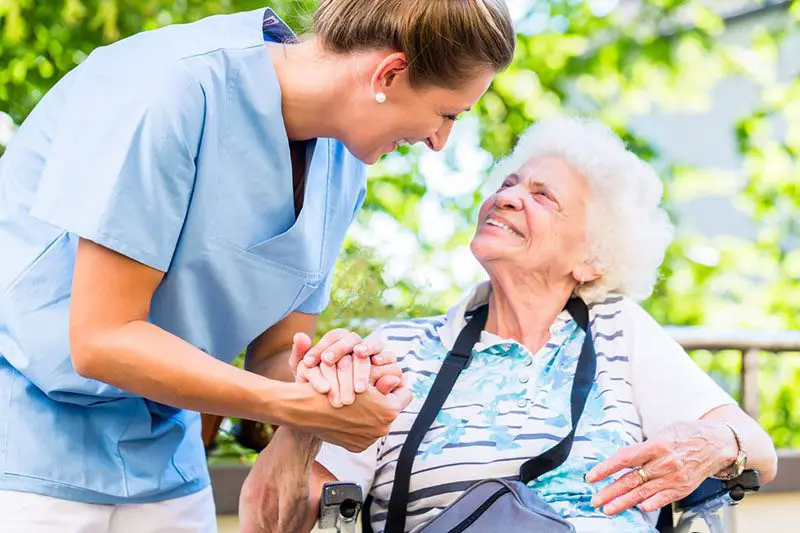As our loved ones age, providing them with the care and support they need becomes increasingly important. This article explores eight essential strategies for compassionate elderly care, offering insights and practical advice for families and caregivers.
Understanding the Unique Needs of Seniors
Caring for older adults requires a deep understanding of their unique needs and challenges. As people age, they often face physical limitations, cognitive changes, and emotional hurdles. Recognizing these factors is crucial for providing effective and compassionate care.
Physical Considerations
- Mobility issues
- Chronic health conditions
- Sensory impairments (vision, hearing)
- Nutrition and hydration needs
Cognitive Aspects
- Memory loss
- Slower processing speed
- Difficulty with complex tasks
- Potential for dementia or Alzheimer’s disease
Emotional Factors
- Loneliness and isolation
- Loss of independence
- Grief from losing peers and loved ones
- Anxiety about health and future
Creating a Safe and Comfortable Environment
One of the most critical aspects of elderly care is ensuring a safe and comfortable living space. This involves making necessary modifications to the home and implementing safety measures to prevent accidents and injuries.
Home Modifications
- Install grab bars in bathrooms
- Remove tripping hazards like loose rugs
- Improve lighting throughout the home
- Consider a stairlift for multi-level homes
Safety Measures
- Install smoke detectors and carbon monoxide alarms
- Keep emergency numbers easily accessible
- Use medical alert systems for quick assistance
- Secure medication storage and organization
Promoting Physical Health and Wellness
Maintaining physical health is crucial for seniors’ overall well-being and quality of life. Encourage regular exercise, proper nutrition, and preventive healthcare measures.
Exercise and Activity
- Low-impact exercises like walking or swimming
- Chair exercises for those with limited mobility
- Gentle stretching and balance exercises
- Group fitness classes designed for seniors
Nutrition and Hydration
- Balanced meals with adequate protein, fruits, and vegetables
- Regular hydration throughout the day
- Consideration of dietary restrictions and preferences
- Supplements as recommended by healthcare providers
Preventive Healthcare
- Regular check-ups with primary care physicians
- Screenings for common age-related conditions
- Vaccinations (flu, pneumonia, shingles)
- Dental and vision care
Fostering Mental and Emotional Well-being
Mental and emotional health are just as important as physical health for seniors. Implementing strategies to support cognitive function and emotional well-being can greatly enhance quality of life.
Cognitive Stimulation
- Puzzles and brain teasers
- Reading and discussion groups
- Learning new skills or hobbies
- Memory games and activities
Social Engagement
- Regular family visits and gatherings
- Participation in community events
- Volunteer opportunities
- Technology for staying connected with loved ones
Emotional Support
- Open communication about feelings and concerns
- Professional counseling or therapy when needed
- Support groups for seniors facing similar challenges
- Mindfulness and relaxation techniques
Managing Medications and Healthcare
Proper medication management and healthcare coordination are crucial for seniors with multiple health conditions. Implementing a system for organizing and administering medications can help prevent errors and ensure optimal health outcomes.
Medication Management
- Use pill organizers or automated dispensers
- Keep an updated list of all medications and dosages
- Set reminders for medication times
- Regularly review medications with healthcare providers
Healthcare Coordination
- Maintain a central file of medical records
- Coordinate care between different specialists
- Attend medical appointments with seniors when possible
- Use digital health tools for tracking symptoms and vitals
Addressing Personal Care Needs
As seniors age, they may require assistance with personal care tasks. Providing this care with dignity and respect is essential for maintaining self-esteem and quality of life.
Bathing and Hygiene
- Install safety features in the bathroom
- Use adaptive equipment like shower chairs
- Maintain a consistent routine
- Respect privacy and dignity during care
Dressing and Grooming
- Choose comfortable, easy-to-wear clothing
- Encourage independence when possible
- Assist with grooming tasks as needed
- Consider adaptive clothing options
Planning for the Future
Planning for the future is an important aspect of elderly care. This includes discussing end-of-life wishes, financial planning, and considering long-term care options.
Advanced Care Planning
- Discuss and document end-of-life wishes
- Create advance directives and living wills
- Designate healthcare proxies
- Review and update plans regularly
Financial Planning
- Review and organize important financial documents
- Consider long-term care insurance options
- Explore government benefits and assistance programs
- Consult with a financial advisor specializing in elder care
Long-term Care Options
- Evaluate in-home care services
- Research assisted living facilities
- Consider nursing home options if needed
- Explore adult day care programs
Caring for the Caregiver
Caring for an elderly loved one can be physically and emotionally demanding. It’s crucial for caregivers to prioritize their own well-being to avoid burnout and provide the best possible care.
Self-care Strategies
- Regular exercise and healthy eating
- Adequate sleep and rest
- Stress management techniques
- Hobbies and personal interests
Support Systems
- Join caregiver support groups
- Seek respite care options
- Utilize community resources
- Consider professional counseling
Those seeking senior care Charleston options may find valuable resources and support through local agencies and care providers.
Embracing Compassionate Care
Providing compassionate care for elderly loved ones is both challenging and rewarding. By implementing these strategies and maintaining a focus on dignity, respect, and quality of life, families and caregivers can ensure that seniors receive the care and support they need to thrive in their golden years.
Remember that every senior’s needs are unique, and care plans should be tailored to individual circumstances. Regular communication with healthcare providers, family members, and the seniors themselves is key to adapting care strategies as needs change over time.

